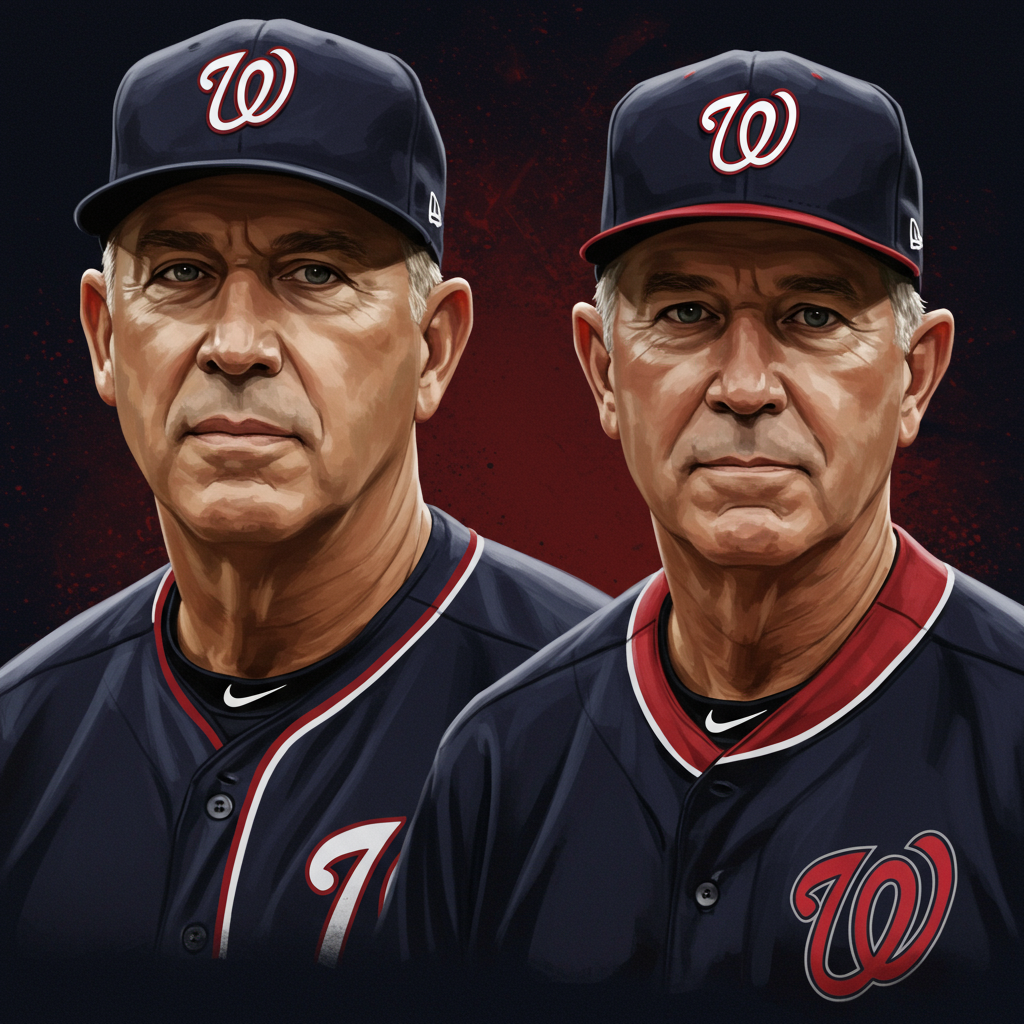A seismic shift has hit the Washington nationals organization. On Sunday, July 6, 2025, the team announced the firings of both General manager Mike Rizzo and Manager Dave Martinez. This pivotal decision ends one of the longest-standing leadership partnerships in Major League Baseball. While this duo delivered the franchise’s sole World Series title in 2019, the club has since endured six consecutive losing seasons.
Principal owner Mark D. Lerner confirmed the significant personnel changes in a statement. He acknowledged Rizzo and Martinez’s invaluable contributions, particularly their roles in securing the 2019 championship. However, Lerner stated the team’s recent on-field performance has fallen short of expectations for ownership and fans alike. He described the current moment as “pivotal” for the club, indicating a “fresh approach and new energy” is necessary to move forward.
An Era Concludes in Washington
Mike Rizzo, 64, had a remarkable tenure with the Nationals, joining the front office in 2007. He ascended to General Manager in 2009 and took on the additional title of President of Baseball Operations in 2013. For over a decade, Rizzo was credited with building the foundation of the Nationals’ success. He notably drafted franchise cornerstones like Stephen Strasburg and Bryce Harper with high picks. Under his guidance, Washington became a consistent contender, capturing four NL East titles between 2012 and 2017. Rizzo’s roster construction was instrumental in assembling the team that ultimately triumphed in 2019.
Dave Martinez, 60, was handpicked by Rizzo before the 2018 season. This marked his first role as a Major League manager. Martinez became the Nationals’ longest-tenured manager, spending eight seasons in the dugout. Despite a challenging 19-31 start to the 2019 season, Rizzo’s decision to stick with Martinez proved prescient. The team went on an improbable run, culminating in the World Series victory over the Houston Astros.
From Champions to Rebuilding Pains
The high of the 2019 championship quickly faded. The Nationals have struggled immensely in the years that followed. Since winning the World Series, the team ranks third in total losses across all of Major League Baseball. Only the Pittsburgh Pirates and Colorado Rockies have lost more games in that span. Washington has not reached the postseason since their championship year.
The decline began almost immediately after 2019. The pandemic-shortened 2020 season saw a losing record. This was followed by consecutive seasons with 97 and 107 losses. The team then posted identical 71-91 records in 2022 and 2023. The current 2025 season finds them at a disappointing 37-53. This record places them squarely in last place in the NL East. They also hold the second-worst record in the entire National League.
The timing of the firings was notable. The decision came more than halfway through the current season. It also occurred just one week before the crucial MLB Amateur Draft. The Nationals hold the highly coveted No. 1 overall pick in that draft.
Analyzing the Decline: Factors Beyond the Dugout
Several factors contributed to the team’s prolonged struggles since their peak. A significant element has been the team’s financial approach. The Nationals consistently had a top-10 payroll between 2014 and 2021. However, their average payroll over the last three years has fallen into the bottom 10 league-wide. This suggests a decreased willingness to invest heavily in player talent through free agency.
The team also initiated a significant roster teardown beginning after the 2020 season. Core players from the championship team were traded away. This included stars like Max Scherzer, Trea Turner, and most notably, Juan Soto. The Soto trade in August 2022, after he declined a substantial contract extension, brought back a package of young talent. This package included players like shortstop CJ Abrams, left-hander MacKenzie Gore, and outfielder James Wood.
Prospect Promise and Team Weaknesses
These young players acquired via trade form the core of the current rebuild. Abrams was an All-Star in 2024, while Gore and Wood were named National League All-Stars in 2025. Despite this injection of promising talent, the team’s performance has not improved dramatically.
Other issues have plagued the Nationals’ on-field results. The team’s bullpen, in particular, has been a major weakness. As of the firings, the Nationals’ bullpen ERA ranked 29th in MLB. This often turned potentially close games into losses. Additionally, the offense experienced significant slumps, including recently being outscored 21-5 in the two games preceding the firings against the Red Sox.
Some analysis suggests the Rizzo regime struggled with consistent player drafting and development outside of key trade acquisitions. Despite having high draft picks in recent years, the pipeline of ready MLB talent beyond the trade returns appeared thin. This perspective, combined with the perceived lack of investment in capital improvements or impact free agents, added pressure.
Ownership’s Stance and the Road Ahead
Mark Lerner’s statement conveyed gratitude while underscoring the need for change. He praised Rizzo’s role in transforming the farm system and building the championship roster. Regarding Martinez, Lerner highlighted his ability to connect with players, staff, and the community. He expressed hope for Martinez’s future success.
Lerner reiterated the Lerner family’s long-standing commitment to winning. This commitment dates back nearly 20 years to when his late father took control of the team. He framed the firings as a difficult but necessary step towards a positive direction. Lerner pointed to the young core, including Abrams, Gore, Wood, and prospect Dylan Crews, as reasons for fan optimism.
Mike DeBartolo, the team’s Senior Vice President and Assistant General Manager, has been appointed interim GM. He will immediately assume leadership of baseball operations. His responsibilities include preparing for the upcoming draft and navigating the trade deadline. The team has not yet named an interim manager. A decision on that front is anticipated soon. This change marks the beginning of a new era and a fresh vision for the Washington Nationals organization.
Frequently Asked Questions
Why did the Washington Nationals fire Dave Martinez and Mike Rizzo?
The Nationals fired Manager Dave Martinez and General Manager Mike Rizzo due to the team’s poor on-field performance. Despite winning the World Series in 2019, the team has had six consecutive losing seasons. As of July 6, 2025, their record was 37-53, placing them last in the NL East. Ownership stated performance hasn’t met expectations and felt a “fresh approach” was needed.
Who is the interim General Manager for the Nationals?
Following Mike Rizzo’s firing, Senior Vice President and Assistant General Manager Mike DeBartolo has been named the interim General Manager for the Washington Nationals. DeBartolo will take immediate charge of baseball operations. His key tasks will include overseeing the team’s strategy for the upcoming MLB Draft, where they hold the No. 1 pick, and navigating the trade deadline.
What does this change mean for the Nationals’ future and rebuild?
The firings signal a new direction for the Washington Nationals’ rebuild. With interim GM Mike DeBartolo now leading baseball operations, including the crucial No. 1 draft pick decision, the club enters a new era. Ownership expressed optimism about the team’s young core like CJ Abrams, MacKenzie Gore, and James Wood, suggesting these changes are intended to accelerate the path back to contention.
Washington Nationals Principal owner Mark Lerner’s statements emphasize that the family remains committed to winning. The changes reflect a desire to inject new energy into the organization’s strategic vision. The path forward involves building around promising young talent while potentially addressing team weaknesses like the bullpen. The future managerial search will also shape the team’s culture and on-field strategy. This pivotal moment aims to reset the franchise’s trajectory after years of struggle post-championship.



